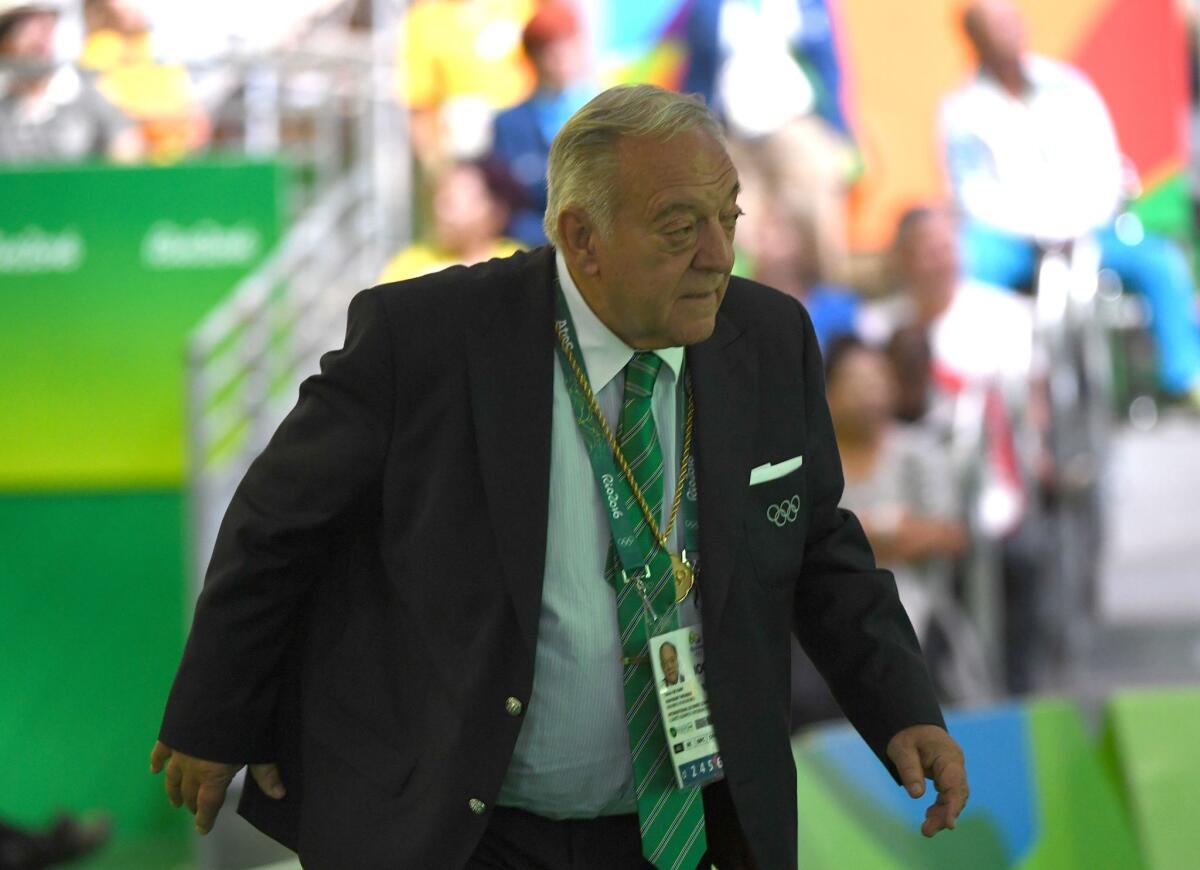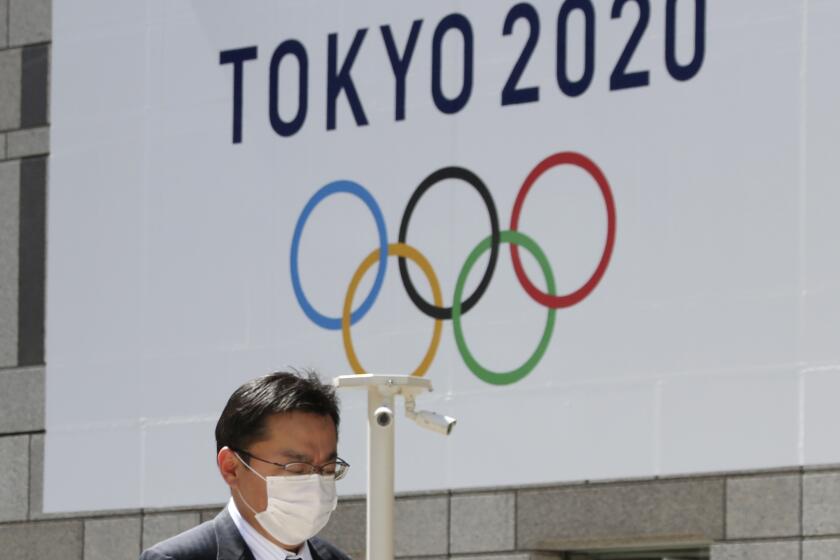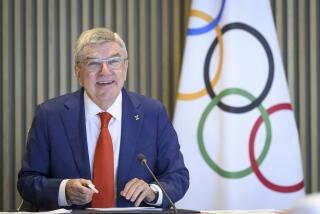Weightlifting investigation uncovers long history of doping and corruption

- Share via
An investigation of the International Weightlifting Federation has found decades of corruption, including millions in missing cash and a cover-up that allowed top athletes to compete despite testing positive for performance-enhancing drugs.
The report issued Thursday by Richard McLaren — who also led a probe into Russian doping in 2016 — placed most of the blame on Tamas Ajan, the federation’s general secretary and president for 44 years who resigned in April.
“The foundational control mechanism used by Dr. Ajan was the tyranny of cash,” McLaren said. “Cash collected, cash withdrawn, and cash unaccounted for, which Dr. Ajan was the sole collector.”
The investigation was triggered by a documentary that aired in 2020 on the German television network ARD. McLaren was enlisted soon after and chose to focus on the period from 2009 through 2019.
The Canadian law professor discovered that Ajan personally collected fines — as large as $100,000 or more — from national federations whose athletes were caught doping.
Anti-doping authorities are seeking to bar Russia through the 2022 Winter Olympics in Beijing.
With money flowing into numerous accounts, more than $10 million went unaccounted for. McLaren alleges that Ajan used bribery to ensure votes for his periodic reelection and the election of senior officials he favored.
“The control exerted by Dr. Ajan was absolute and infamous,” the report stated, adding that he “ran the IWF as if it was his own personal fiefdom.”
Searching through records, investigators discovered hidden files that showed 40 positive doping tests for prominent weightlifters. “This includes gold and silver medalists who have not had their samples dealt with,” the report stated.
Relevant evidence will be turned over to the World Anti-Doping Agency. The International Olympic Committee said it would seek to “determine whether there are any doping cases concerning the Olympic Games, and will follow up accordingly.”
McLaren noted the federation has significantly overhauled its leadership and, since 2019, has outsourced its anti-doping program.
“These changes demonstrate a sport … freeing itself of its conflicts of interest and introducing transparent and trustworthy processes,” the report said. “Weightlifting must face its past and move forward, leaving whatever rumors, allegations, facts, and evidence in the past.”
More to Read
Go beyond the scoreboard
Get the latest on L.A.'s teams in the daily Sports Report newsletter.
You may occasionally receive promotional content from the Los Angeles Times.








